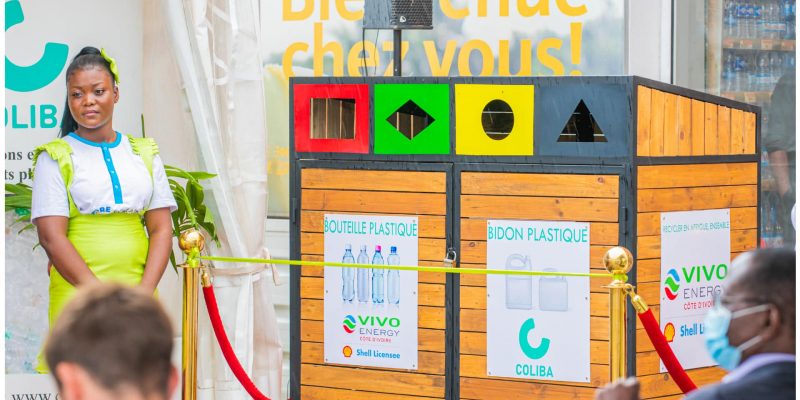The Ivorian subsidiary of the Dutch group Vivo Energy has signed an agreement with the start-up Coliba to manage its plastic waste. Vivo Energy Ivory Coast will equip 40 of its Shell service stations with bins to collect plastic bottles.
Vivo Energy Ivory Coast wants to reduce its environmental impact through the recycling of plastic bottles. The subsidiary of the Dutch oil company Vivo Energy will rely on Coliba’s expertise to achieve its objective. According to the partnership signed on June 16th, 2021, Vivo Energy Ivory Coast will equip 40 of its Shell service stations with bins for collecting plastic bottles. In addition to selling fuel and lubricants, these stations have shops that serve coffee and pastries.
The bins “will encourage local communities to adopt eco-citizen habits, thus contributing to the preservation of our ecosystem,” says Mohamed Chaabouni, the managing director of Vivo Energy Ivory Coast. The Ivorian start-up Coliba will recycle the collected plastic bottles into reusable plastic granules. This material is sold to the automotive, construction and textile industries, etc.
A regional commitment?
Vivo Energy Ivory Coast also plans eco-citizen programmes on the theme of environmental protection. These initiatives will be implemented in five public schools in the country. According to the Ivorian Ministry of the Environment and Sustainable Development, Ivory Coast produces more than 40,000 tonnes of plastic waste each year. More than 50% of this waste is disposed of directly into the streets, while less than 20% is sorted and recycled. The ministry notes that the immediate consequence of this situation is increased environmental pollution, particularly of waterways and aquatic ecosystems.
Read Also – AFRICA: The continent is tackling the tide of waste that fouls the environment
Vivo Energy is also supporting the fight against plastic waste pollution in other countries in Africa, including Uganda. Its Ugandan subsidiary is working with Stanbic Bank Uganda, Next Media Services, Uganda Breweries and the National Environment Management Authority (Nema) on a ‘Save the Environment’ initiative.
The three-year campaign aims to raise awareness about the dangers of plastic waste pollution. Ugandan households will also be educated on “sustainable” plastic waste disposal techniques. The East African country produces 1,500 tonnes of plastic waste every day, with only 500 tonnes being properly managed.
Inès Magoum






